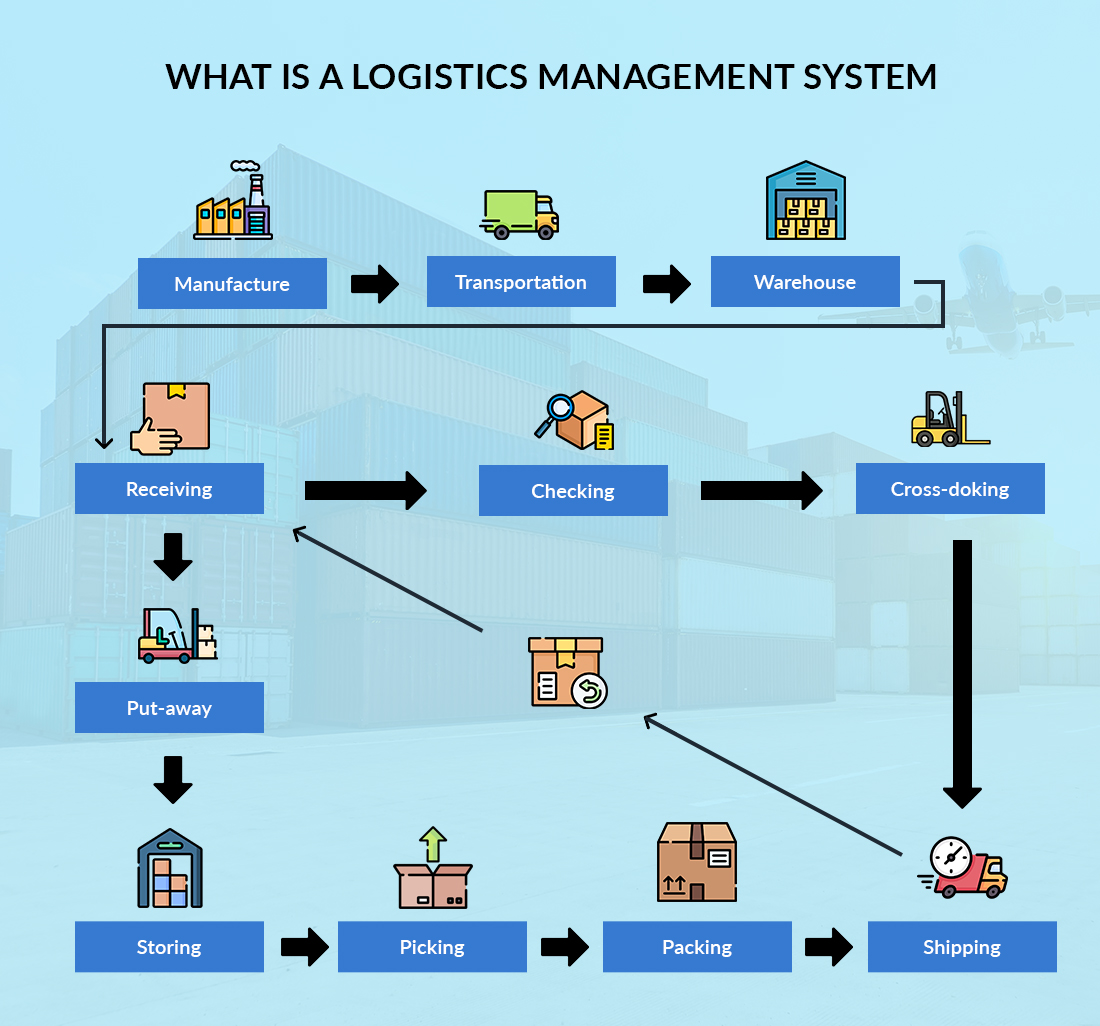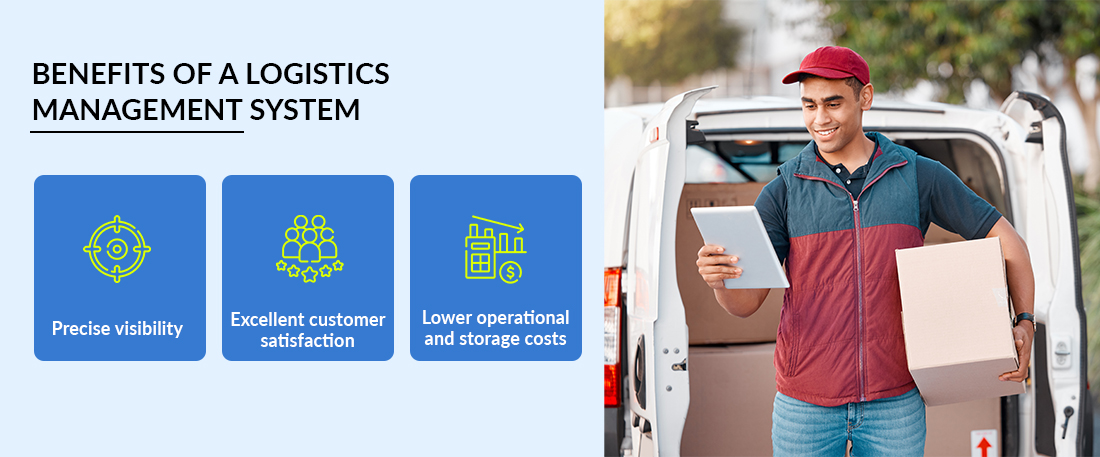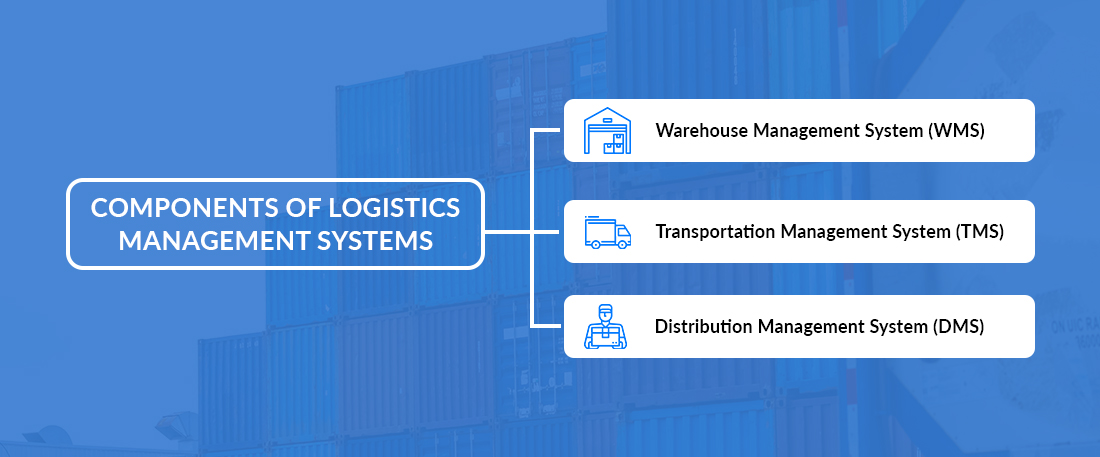July 03, 2023
By: PhoenixBizz Staff Writer
PhoenixBizz is a division of Sofvue, LLC
Printed with permission of Data Titan and Sofvue LLC
Companies dealing with goods and resources know how challenging it is to manage their work while also ensuring the processes are streamlined. Whether you talk about the e-commerce sector or retail, logistics management remains a larger challenge. Since the advent of technology has revolutionized the world, it has also given a sigh of relief to business owners.
Logistic management systems have emerged as a blessing by automating and simplifying the work of many industries. It helps in streamlining the transportation and dispatching of the goods. The system also comes in handy for efficiently managing the warehouse and inventory packaging. If you wish to focus on other essential business aspects rather than worrying about managing your logistics, then a logistics management system is the right solution to your problem. To make the task easier for you, we have gathered detailed information on the logistics management system, how it can benefit you, and the challenges you can face.
What is a Logistics Management System?

As the name already suggests, a system that helps in the efficient management of your logistics and its controls is a logistics management system. But that's only a simple definition, as there are more technicalities and functionalities.
For a company to properly meet its business demands, various systems need to be in place. E-commerce and similar businesses have to ensure that all these steps are implemented properly. For example, they have to keep track of their goods and commodities in the warehouse; they also need to identify the products that need to be restocked; and the list goes on. A logistics management system helps manage all these tasks quickly and easily with accuracy.
The system automates most of the tasks and usually consists of a CMS-like layout that is easy to manage and work with. Your staff can simply log all the records in the system to make tracking easier. From shipment and delivery details to stock and failed deliveries, a logistics management system can help you in various ways.
Must Read: How Smart Warehouses and Mobile Apps Are Being Transformed by AI in Logistics
Benefits of a Logistics Management System
A logistics management system can lead to higher results, reduced costs, smarter warehouse space usage, etc. Companies now rely heavily on these systems to automate various tasks for time- and cost-efficient results. A good software development company can develop a world-class logistics management system that streamlines your workflow. Here are the top benefits of a logistics management system:

#1. Precise visibility
Supply chain and logistics management can be tough without proper tools. However, a centralized system not only streamlines your processes but also ensures better visibility. You get insights into all the interconnected activities and procedures that help you make informed decisions. The data ensures early detection of errors and problems, saving both time and money.
#2. Excellent customer satisfaction
When you rely on a Logistics management system for your workflow, you reduce the chances of mismanagement and late deliveries. This gives you an edge over your competitors as your service remains top-notch, resulting in higher customer satisfaction and better ratings. The system develops transparency between them and service providers by helping them track their order status. At PhoenixBizz, we specialize in developing feature-loaded and responsive logistics management systems for companies of all sizes.
#3. Lower operational and storage costs
By automating and streamlining processes, logistics management can significantly save overhead expenses. It has the capacity to regulate inventory levels and implement a well-thought-out plan to assess demand and supply, ensuring that the companies do not buy unnecessary logistics supplies. Additionally, logistics management can be applied to preventative maintenance to save money by reducing the likelihood of vehicle breakdowns. In order to promote ordered movement during transportation, it streamlines all operations.
Components of Logistics Management Systems

Logistics is an umbrella term that is composed of different components. Generally, there are three components to a logistics management system:
✅ Warehouse Management System (WMS)
✅ Transportation Management System (TMS)
✅ Distribution Management System (DMS)
All these components perform specific tasks according to the industry and have their benefits.
1. Warehouse Management Systems (WMS)
Warehouse management systems are software applications that automate and facilitate various warehouse processes, from receiving and put-away to picking, packing, and shipping. These systems use a combination of technologies such as barcode scanning, Radio Frequency Identification, and automation to improve operational efficiency and accuracy within the warehouse.
◾Tasks performed by WMS.
Since WMS offers real-time delivery and shipment tracking, it makes an excellent inventory management system. It can help your company efficiently track and monitor inventory and workflow.
A WMS can also help in identifying the best delivery and pick-up practices specific to the type of business you own. It enables customers to track their orders, resulting in higher customer satisfaction.
The system delivers timely analytics reports for you to identify which delivery practice worked the best, the performance of the warehouse metrics, inventory turnover, etc.
◾Advantages of using WMS
Companies are heavily utilizing warehouse management software development for better growth and profit.
➤ Higher productivity and efficiency: WMS optimizes warehouse processes, eliminating manual and paper-based tasks and streamlining operations through automation. This leads to improved productivity, reduced labor costs, and faster order processing times.
➤ Real-time tracking: The system is gaining popularity because it not only allows customers to track their orders, but you as a business owner also get updates on the order's whereabouts.
➤ Streamlined tasks: By installing a WMS, you will no longer have to perform tasks that can be easily automated, saving you time and energy to focus on more important aspects.
2. Transportation Management System
TMS is used by industries to manage the transportation of their goods and resources. It plays a key role in tracking the delivery and shipment status of products. TMS is an essential part of logistics management as it works as a mediator between legacy order processing and warehouse distribution.
◾Tasks performed by TMS
It assists your business with effective inventory flow. TMS is responsible for the smooth flow of your company's supply chain, so the inventory doesn't run out of stock. It also reduces the overall lead time and saves money on storage. By enhancing the inventory flow, a TMS will also reduce disruption damages.
By utilizing dedicated fleet management software, you can take your management capabilities even further. This includes efficiently managing fuel consumption and minimizing environmental impact, staying on top of vehicle checkups and maintenance tasks, and exercising remote control over your trucks. You can easily optimize your inventory and transportation with a unified system.
When you get your personalized TMS developed, you can stay in constant contact with your partners and customers. They can create and view their order status through a centralized app that can be synced with your TMS. Tenders and partners can also submit their invoices through this portal, making the entire process smooth and easy.
◾Advantages of using TMS
You can get your own transportation management software developed to enjoy the various benefits it offers.
➤ Cost reduction: TMS offers capabilities to compare carrier rates, pick the most economical routes, combine shipments, and reduce empty miles, which aids firms in minimizing transportation expenses. Additionally, it streamlines precise goods audit and payment procedures, guaranteeing that bills are exact, and errors are quickly fixed.
➤ Better carrier collaboration: One of the main advantages of a TMS is that it allows clear communication across various channels. This helps in better collaboration with your carriers using electronic communication channels. Since the software automates the communication part, paperwork and manual work are significantly reduced.
➤ Legal compliance: TMS assists companies in adhering to a variety of industry standards and transportation laws. The management of necessary paperwork, licenses, and certifications helps to ensure that transportation activities comply with legal and regulatory standards.
3. Distribution Management Systems (DMS)
A distribution management system is designed to help companies manage their distribution and its components with automated software. It mainly focuses on improving your order management, inventory allocation, warehouse forecasting, etc. It helps in streamlining your distribution processes for higher results in less time.
◾Tasks performed by DMS.
A DMS is responsible for ensuring all the distribution processes are carried out smoothly. Your company may deal with supply chain functions that are best managed by automated software. DMS will track your distribution tasks for timely delivery and shipment.
By developing a DMS for your company, you create a centralized system to manage all the tasks from one place. From supplier to retail and e-commerce distribution, distribution management software will ease most of your work by making it paperless and maintaining all records in the system.
Demand Forecasting: DMS utilizes historical sales data, market trends, and predictive analytics to forecast demand accurately. By analyzing patterns and trends, the system provides insights into anticipated product demand, helping businesses optimize inventory levels, production, and procurement.
◾Advantages of DMS
Almost all big and small firms are now operating on distribution management systems because of the added benefits they get from this software. PhoenixBizz can develop a high-end logistics management system, customized to your exact business requirements.
➤ Accurate demand forecasting: Thanks to emerging analytics and technology, DMS can accurately forecast customer demands. It uses predictive analytics and past sales data combined with consumer trends to predict stock availability. This saves you from overstock and overstock situations, ensuring your business runs smoothly, leading to faster order turn-around times and delayed order placement because of less stock.
➤ Higher customer satisfaction: A distribution management system will get you more satisfied clients. With timely order deliveries, DMS will also offer them real-time order tracking features for better results. The system also provides insights into the shipment's progress with real-time data. Additionally, DMS enables efficient handling of customer inquiries, order changes, and returns, leading to enhanced customer satisfaction and loyalty.
➤ Streamlined Order Processing: A DMS automates the order management process, from order placement to fulfillment. It enables businesses to receive and process orders efficiently, allocate inventory based on availability and demand, and ensure timely order fulfillment. This streamlining of order processing leads to faster order turnaround times, reduced errors, and improved customer satisfaction.
Challenges of Logistics Management Systems
Technology has advanced heavily in the past few years. It has emerged as a major helping hand for various industries, and you can leverage it for better outputs. But all technologies pose certain challenges. However, these challenges can be solved with the right expertise and resources. Here are the major challenges one may face with logistics management systems:
Data Security is one of the major challenges you face with logistics management systems. But a reputable software development company will deliver software that remains bug-free and secure from all data thefts and malware.
Logistics management software works on heavy data for stock prediction and other related tasks. Always rely on developers who take measures to incorporate predictive analytics techniques with the right and precise data.
Setting up and maintaining logistics management systems may be very expensive, both initially and over time. To justify the costs and guarantee long-term value, organizations must carefully assess the return on investment (ROI) and cost-effectiveness of the system installation.
Frequently Asked Questions
1. How much do you charge for logistics management software development?
Estimating the exact development cost depends on certain factors like the requirements stack, modules, components, required features, and many others. Contact our support team for pricing.
2. How do you maintain data security?
We have a team of experts who have years of experience developing safe and secure software. We take proper security measures to deliver a product that remains protected from data theft, malware, and viruses.
3. What is the estimated delivery period to build a logistics management software system?
The actual delivery period depends on the project complexity and other aspects involved in the development process. You can call our help and support team to further discuss your project and get an estimated project timeline.
Conclusion
A logistics management system can add value to your business output by automating tasks that take up unnecessary time. The system consists of several top-class features that lead to higher results and a faster delivery time. It also streamlines most processes by utilizing the latest advanced technologies.
For better business ROI, you need a system that is developed with precision and expertise. PhoenixBizz has a pool of architects, business analysts, project managers, expert developers, and designers who are proficient in developing complex application systems. We are a software development company that ensures hassle-free delivery of superior systems that add value to your business.
Read More: Logistics Mobile App - Blue Jay Logistics Portfolio









